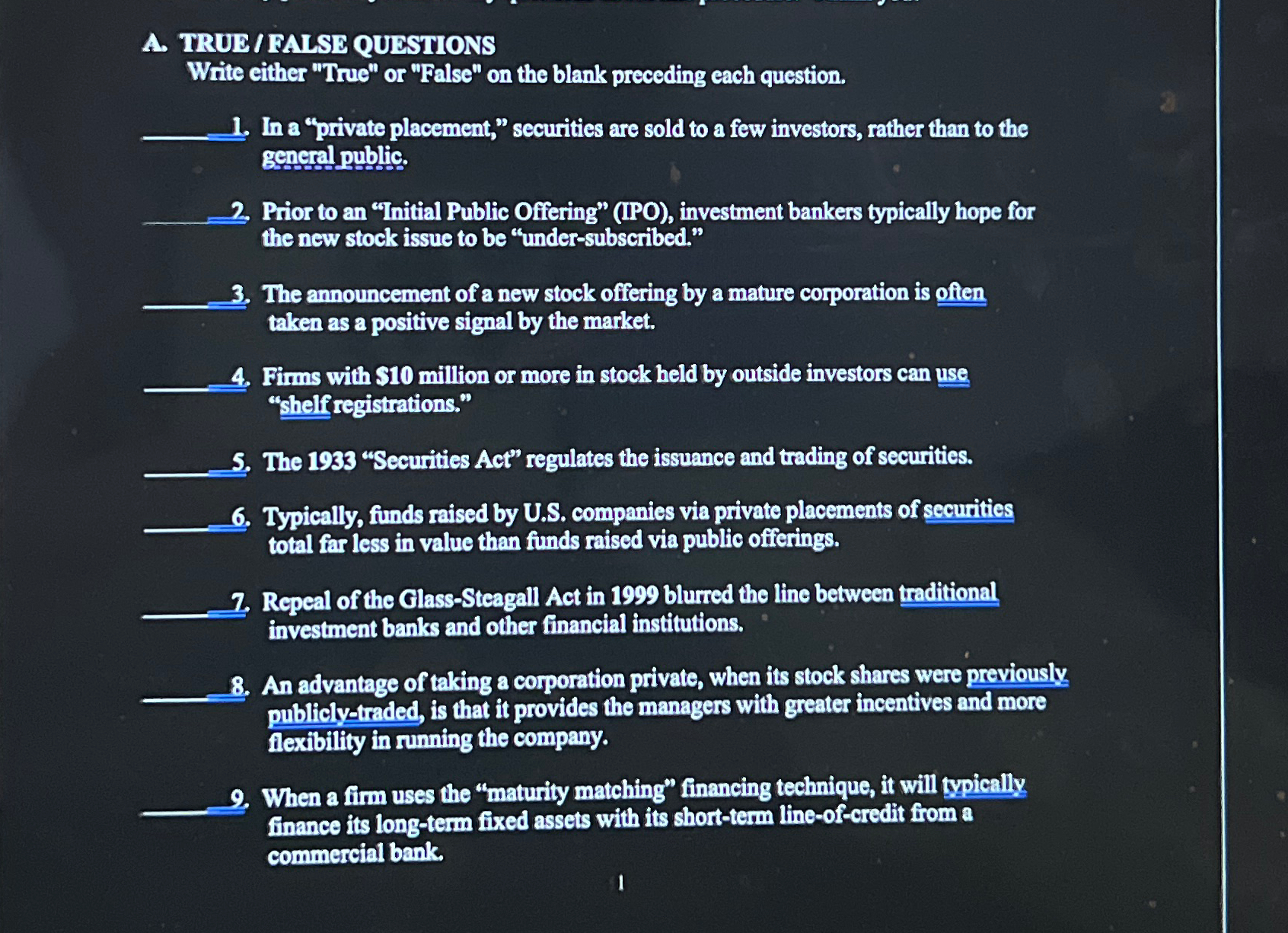Answered step by step
Verified Expert Solution
Question
1 Approved Answer
A. TRUE/FALSE QUESTIONS Write either True or False on the blank preceding each question. 1. In a private placement, securities are sold to a

A. TRUE/FALSE QUESTIONS Write either "True" or "False" on the blank preceding each question. 1. In a "private placement," securities are sold to a few investors, rather than to the general public. 2. Prior to an "Initial Public Offering" (IPO), investment bankers typically hope for the new stock issue to be "under-subscribed." 3. The announcement of a new stock offering by a mature corporation is often taken as a positive signal by the market. 4. Firms with $10 million or more in stock held by outside investors can use "shelf registrations." 5. The 1933 "Securities Act" regulates the issuance and trading of securities. 6. Typically, funds raised by U.S. companies via private placements of securities total far less in value than funds raised via public offerings. 7. Repeal of the Glass-Steagall Act in 1999 blurred the line between traditional investment banks and other financial institutions. 8. An advantage of taking a corporation private, when its stock shares were previously publicly-traded, is that it provides the managers with greater incentives and more flexibility in running the company. 9. When a firm uses the "maturity matching" financing technique, it will typically finance its long-term fixed assets with its short-term line-of-credit from a commercial bank.
Step by Step Solution
There are 3 Steps involved in it
Step: 1

Get Instant Access to Expert-Tailored Solutions
See step-by-step solutions with expert insights and AI powered tools for academic success
Step: 2

Step: 3

Ace Your Homework with AI
Get the answers you need in no time with our AI-driven, step-by-step assistance
Get Started


